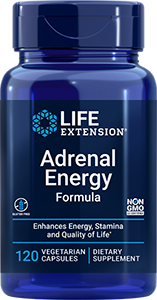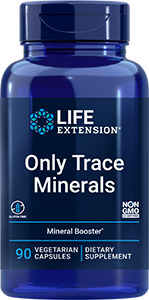Meta-analysis affirms association between omega-3 fatty acid supplementation and lower markers of inflammation
Friday, February 14, 2014. The results of a meta-analysis published on February 5, 2014 in the journal PLoS One contribute further evidence to an anti-inflammatory benefit for supplementation with marine-derived omega-3 fatty acids eicosapentaenoic acid (EPA) and docosahexaenoic acid (DHA).
Researchers in Hangzhou, China selected 68 randomized, controlled trials that examined the effects of omega-3 fatty acids in a total of 4601 participants. Two of the trials involved subjects with chronic autoimmune disease, 48 studies involved those with chronic non-autoimmune diseases (being at risk of or diagnosed with cardiovascular disease), one trial involved patients with autoimmune disease as well as those with non-autoimmune chronic diseases, and 17 involved healthy men and women. Forty-four of the studies involving chronic non-autoimmune disease patients used omega-3 fatty acid supplements and the remainder involved dietary intake of fish. All of the studies involving autoimmune disease patients or healthy participants utilized omega-3 supplements.
A pooled analysis of all subjects confirmed a significant association between omega-3 fatty acid supplementation and decreased blood levels of C-reactive protein (CRP) and interleukin-6 (IL-6) which are markers of inflammation. Among those with chronic non-autoimmune disease, a greater reduction in blood levels of IL-6 and tumor necrosis factor-alpha (TNF-a, another marker of inflammation) was observed in association with a longer duration of supplementation. A similar relationship was observed for IL-6 among healthy participants. The benefit for omega-3 fatty acids among those with chronic non-autoimmune disease was greater for those who were non-obese. When studies that utilized fish as a source of omega-3 fatty acids were separately analyzed, an association was found for a decrease in interleukin-6 with increased intake, but unlike fish oil supplements, fish alone did not decrease CRP or TNF.
"Our findings provide a scientific guide for nutritional therapy of inflammation-related chronic diseases," authors Kelei Li and colleagues conclude. "Consecutive long-term supplementation of marine-derived omega-3 polyunsaturated fatty acids is recommended. Our present studies also suggest that marine-derived omega-3 polyunsaturated fatty acid supplementation can effectively prevent inflammation-related chronic diseases considering its significant lowering effect on CRP, IL-6 and TNF-a in healthy subjects."
|
 |
What's Hot
The October 2013 issue of the Journal of the American Heart Association reports the finding of Finnish researchers of a reduction in silent brain infarcts and white matter changes in older men and women with higher levels of plasma phospholipid long chain omega-3 polyunsaturated fatty acids (PUFA). Silent infarcts, which are small brain lesions caused by lack of blood flow, are associated with a decrease in thinking skills and are estimated to affect approximately 20% of healthy older individuals.
For the current investigation, Jyrki K. Virtanen and colleagues evaluated data from participants in the Cardiovascular Health Study aged 65 and older who underwent magnetic resonance imaging (MRI) of the brain between 1992 and 1994. Of this group, 2,313 subjects underwent repeat MRI examination after five years. Those with a history of stroke or transient ischemic attack, or whose fatty acid data was incomplete were excluded from the current study. Plasma samples collected from 1992 to 1993 were analyzed for phospholipid polyunsaturated fatty acid levels.
When those whose long-chain omega-3 polyunsaturated fatty acid (EPA, DHA and DPA) levels were among the top 25% of 2,293 participants were compared with those whose levels were among the lowest 25%, they were found to have a 40% lower risk of subclinical infarct detected during the first MRI. Subjects whose long-chain omega-3 levels were highest also had fewer white matter changes in comparison with those in the lowest group.
"Among older adults, higher phospholipid long‐chain omega‐3 PUFA content was associated with lower prevalence of subclinical infarcts and better white matter grade on MRI," the authors write. "Our results support the beneficial effects of fish consumption, the major source of long‐chain omega‐3 PUFAs, on brain health in later life."
|
 |
Highlight
The Issue Is Your Health, January 2014
|
Life Extension's The Issue is Your Health, hosted by Michael A. Smith, MD, Senior Health Scientist, is informative, fresh, smart, and stimulating.
In this issue, nutrition expert and naturopathic physician Dr. Judith Thompson, discusses the newly discovered aging switch and how to turn it off. Dr. Thompson says that mung bean extract and green tea are the best ways to counter the effects of this new aging mechanism. |
|
 |
Latest Products |
 |
|
Life Extension® has created a state-of-the-art formulation of botanical adaptogens, shown to modulate a broad range of factors to help relieve the effects of stress.
Adrenal Energy Formula combines four known stress-modulating extracts—holy basil, cordyceps, bacopa, and ashwagandha—each scientifically validated to support homeostasis, even on the most stressful days. Each of these extracts modulates a different set of stress related changes in the body's chemistry. Combined, they may complement each other to provide complete adaptogenic stress defense.
For those who are seeking protection from the effects of stress, Adrenal Energy Formula is a broad-spectrum, potent, and safe formulation for maintaining healthy energy and vitality. |
| |
 |
|
Zinc is a mineral that stimulates the activity of approximately 300 enzymes, which are substances that promote biochemical reactions in your body. These reactions are essential for the formation of superoxide dismutase, one of the body's most important free radical scavengers. Zinc also promotes immune function, taste sensitivity, protein and DNA synthesis, insulin production, reproductive organ development and sperm motility.
Chromium plays an important role in maintaining healthy blood sugar levels in those within normal levels when used as part of a healthy diet.
Boron is an essential nutrient for optimal calcium metabolism and healthy bones and joints. Boron may affect human steroid hormone levels. Dietary boron intake may support a healthy prostate.
Vanadyl sulfate is an effective form of the trace mineral vanadium. Research indicates vanadyl sulfate may improve tissue sensitivity and promote already healthy glucose metabolism for those within normal range.
|
|
 |
Related Articles
|
|












